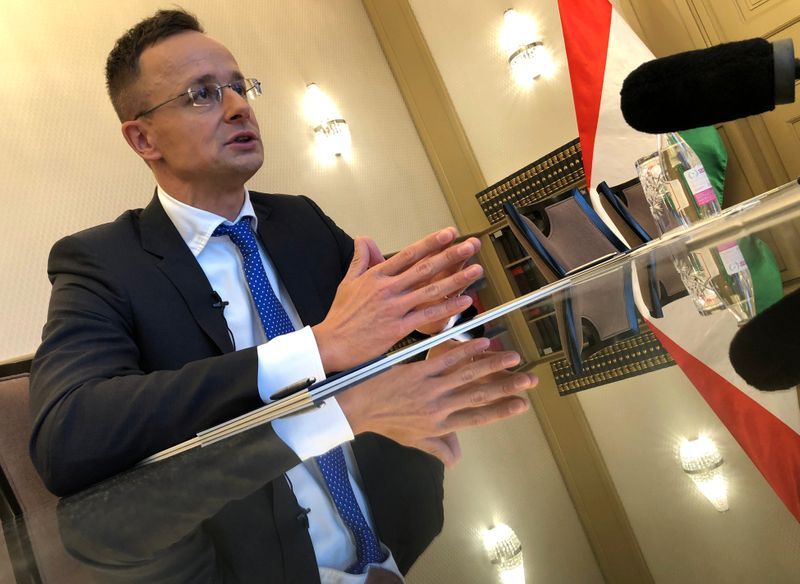‘Can’t leave’: 10 years on, thousands forgotten in Syria desert camp
 A handout picture provided by the Syrian Emergency Task Force (SETF) shows a displaced Syrian child in the Rukban camp, in a no-man's land in southern Syria. AFP
A handout picture provided by the Syrian Emergency Task Force (SETF) shows a displaced Syrian child in the Rukban camp, in a no-man's land in southern Syria. AFPBy Aya Iskandarani AFP
In a no-man’s land on Syria’s border with Iraq and Jordan, thousands are stranded in an isolated camp, unable to return home after fleeing the government and jihadists years ago.
When police defector Khaled arrived at Rukban, he had hoped to be back home within weeks — but eight years on, he is still stuck in the remote desert camp, sealed off from the rest of the country.
Damascus rarely lets aid in and neighbouring countries have closed their borders to the area, which is protected from Syrian forces by a nearby US-led coalition base’s de-confliction zone.
“We are trapped between three countries,” said Khaled, 50, who only gave his first name due to security concerns.
“We can’t leave for (other areas of) Syria because we are wanted by the regime, and we can’t flee to Jordan or Iraq” because the borders are sealed, he added.
The camp was established in 2014, at the height of Syria’s ongoing war, as desperate people fled Islamic State group jihadists and government bombardment in hopes of crossing into Jordan.
At its peak, it housed more than 100,000 people, but numbers have dwindled, especially after Jordan largely sealed its side of the border in 2016.
Many people have since returned to government-held areas to escape hunger, poverty and a lack of medical care. The United Nations has also facilitated voluntary returns with the help of the Syrian Arab Red Crescent.
The last UN humanitarian convoy reached the camp in 2019, and the body described conditions there as “desperate” at the time.
Today, only about 8,000 residents remain, living in mud-brick houses, with food and basic supplies smuggled in at high prices.
– ‘Disease and hunger’ –
Residents say even those meagre supplies risk running dry as government checkpoints blocked smuggling routes to the camp about a month ago.
“My daughters are living off bread and tea. The camp is running out of food,” Khaled told AFP by telephone.
Mohammad Derbas al-Khalidi, who heads the camp’s council, said most families survived on scarce remittances that are funnelled in and largely smuggled aid, while about 500 men working with the nearby US base receive salaries of around $400 a month.
The father of 14 said he was wanted by the government for helping army defectors flee early in the war.
Only a safe passageway to Syria’s rebel-held northwest or its Kurdish-administered northeast could “save the people who remain in Rukban”, Khalidi said.
“If I didn’t fear for myself, my children… I wouldn’t put up with this life of disease and hunger,” he told AFP.
Despite dire conditions, a handful of people keep arriving — but not by choice.
The council and the Syrian Observatory for Human Rights war monitor said several dozen Syrians released from Jordanian prisons have been deported to Rukban in recent years.
Most have been convicted of crimes from drug trafficking to illegally entering Jordan or other security infractions, according to council data, with 24 people sent to the camp so far this year.
Mohammed al-Khalidi, 38, a mechanic not related to the camp chief, said he was deported from Jordan after serving time on drug-related charges.
He expressed anger at being dumped at the camp, and said he feared arrest if he returned to his home in Homs province, now in an area under government control.
“My relatives are all in Jordan. Everyone who was in Syria has either been killed or left. And our homes in Homs have been razed,” he said.
“Where can I go?” he said.
Asked about the deportations, a Jordanian government official denied authorities had forcefully returned refugees.
“Jordan has not and will not force any Syrian refugee to return to Syria,” the official said, requesting anonymity because they were not authorised to speak to the press.
Rukban camp residents “are Syrians and the camp is located on Syrian territory. It is therefore necessary to help them return to their regions inside Syria,” he added.
– ‘Never getting out’ –
Medical care in Rukban is almost non-existent.
Camp chief Khalidi said the site had nurses but no doctors, and people seeking medical treatment must be smuggled into government-held areas, with a round-trip costing about $1,600.
Many camp residents making the journey have disappeared into jails, he added.
Mouaz Moustafa, who heads the Washington-based Syrian Emergency Task Force association, said “the number one thing that they need (in Rukban) even more than food is doctors”.
He noted a total lack of staff trained even for caesarean section births.
Rukban “has the worst living conditions… I have ever seen in any refugee camp”, said Moustafa, whose association has airlifted aid into the camp with help from the nearby US-led coalition base.
Mohammed, 22, who had a liver problem, said that thanks to donations, he was able to be smuggled to government-held territory for surgery, after living in Rukban for years with his family.
He later fled to neighbouring Lebanon to avoid military service and still lives there despite a grinding economic crisis and growing anti-Syrian sentiment.
“Any place on earth is better than Rukban,” he said.
Using a pseudonym because he is in Lebanon illegally, Mohammed said he has not seen his mother and older brothers in two years because they are stuck in the camp.
“My family knows they’re never getting out… They’re not even thinking of fleeing,” he said.
“The camp is like a prison.”










